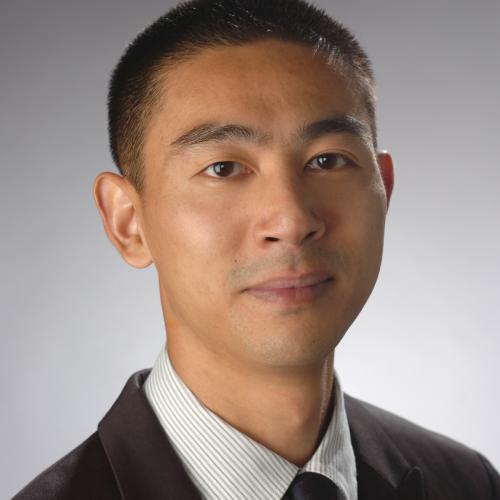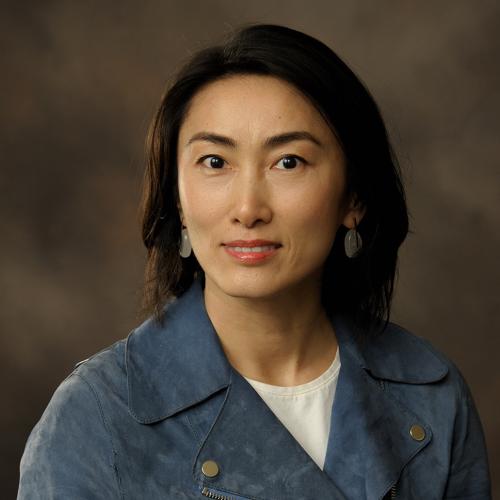Associate Professors Yang Wang and Yun Huang are spearheading a project in collaboration with experts from the University of California-Berkeley and Stanford University to help ensure emerging artificial intelligence (AI) development proceeds in a democratic manner that is mindful of underserved groups. Informatics PhD student Tanusree Sharma is also leading this initiative as a critical component of her dissertation work.
OpenAI, Inc., an American artificial intelligence research lab founded in 2015, has awarded a $110,000 grant for the one-year project, "Inclusive AI: A ChatGPT Plugin and DAO for Engaging Vulnerable Groups in AI." OpenAI created ChatGPT, a natural language processing tool that allows users to have human-like conversations with the chatbot.
OpenAI considered over 800 projects worldwide from groups proposing means to democratically shape what AI can and cannot do. The iSchool proposal was one of ten selected for funding. The goal of the "Inclusive AI" project is to effectively engage underserved populations in democratic decision-making processes about AI system design and governance.
The iSchool team will be working with teenagers, older adults, people with disabilities, people of color, and people from the Global South (broadly comprising countries in the regions of Africa, Latin America and the Caribbean, Asia, and Oceania). The researchers will develop a technical infrastructure that includes a ChatGPT plugin directly supporting Decentralized Autonomous Organization (DAO) mechanisms. DAOs enable decision-making processes to be governed and executed in a decentralized manner, without the need for a central authority or intermediaries. According to Wang, this allows for more transparent, autonomous, and democratic processes.
"We'll have several experimental conditions with varying governance mechanisms," Wang explained. "One example could be different measures for voting power. We'll vary the voting token distribution for each governance pod. In one condition, all users will receive the same number of tokens or voting power during governance decision-making, whereas in another condition, a small group of users will get most of the voting power based on early adoption. The rest of the tokens will be split equally among the other users. We will have other conditions that vary voting mechanisms such as ranked choice voting and quadratic voting."
These experiments will allow the researchers to explore the design space of governance mechanisms that can engage diverse AI users in a democratic decision-making fashion.
Huang added, "In the rapidly advancing field of AI, generative models play a transformative role in shaping our digital interactions. AI tools like ChatGPT can become powerful platforms to empower diverse voices. By connecting underserved groups to the nuances of AI development, we're aiming to evolve AI based on feedback from every corner of our society."
The research team also includes Computer Science undergraduate Jongwon Park, Dawn Song and Yujin Kwon of the University of California-Berkeley, and Sunny Liu and Jeff Hancock of Stanford University.
Wang's research interests include usable privacy and security technologies, social computing, human-computer interaction, and explainable artificial intelligence. His research has gained support from the National Science Foundation (NSF), Department of Health and Human Services, Google, Meta, Alcatel-Lucent, and The Privacy Projects, and has appeared in news outlets such as The New York Times, The Wall Street Journal, BBC, and China Daily. Wang earned his PhD in information and computer science from the University of California, Irvine.
Huang specializes in human-AI interaction and social computing. She is passionate about developing systems that foster collaborative innovation between humans and AI, whether it is to conceive new services or enhance existing ones. Her work is sponsored by government agencies such as the National Science Foundation, Institute of Museum and Library Services, and Administration for Community Living, as well as companies such as Google and IBM. Huang received her PhD from the Donald Bren School of Information and Computer Sciences at the University of California, Irvine.
Sharma's research interests include usable security and privacy, decentralized governance, HCI to design/develop tooling to address issues around power dynamics, and transparency in emerging and complex socio-technical systems (e.g., DAO, DeFi, AI). She earned her BS in computer and information technology from Jahangirnagar University, Bangladesh.

